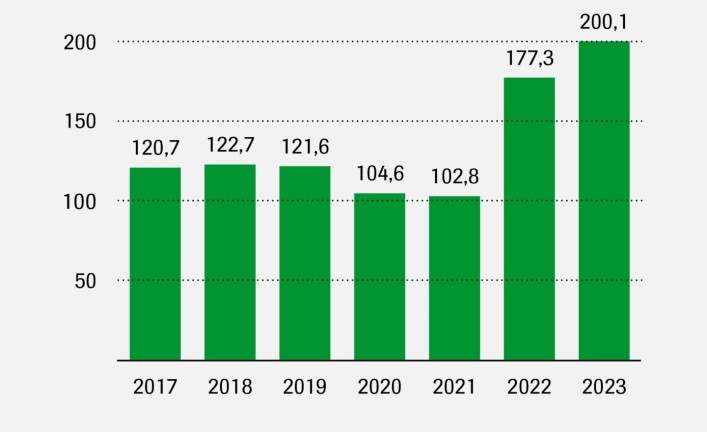Invest in your most valuable resource: your workforce.
In times when the shortage of skilled workers, competition and cost pressure are increasing, the health and performance of the workforce is increasingly coming under the spotlight. This is because uncertainty and work intensification often lead to increased stress and workloads, which has an increasingly negative impact on absenteeism and productivity.
Against this backdrop, corporate health management is becoming increasingly important as a success factor.
- Investments in preventative measures in particular can demonstrably contribute to maintaining the performance and satisfaction of the workforce.
- Increased employee identification and employer branding are other positive side effects in the competition for the best talent.
After deducting the additional overtime worked, the German economy has lost around 700,000 employees in the last two years due to the increased sickness rate.
Source: VFA.de, Destatis
Corporate health management at Infraserv Höchst – because meeting legal requirements is not enough.
Despite existing statutory regulations, such as the occupational medical examinations in accordance with DGUV Regulation 2, which have been enshrined in law since 2008, and workplace integration management, which has been mandatory since 2004, the sickness rate has exploded in recent years.
The increase in sickness cases has considerable economic consequences.
- In 2022 and 2023, the German economy lost around 700,000 employees due to the increased sickness rate.
- This led to an estimated loss of gross domestic product (GDP) totaling 65 billion euros.
- In addition to the direct impact on productivity, there is an additional burden on the healthy workforce, which often has to work overtime to compensate for the absences.
Infraserv Höchst's corporate health management program is based on three pillars.








